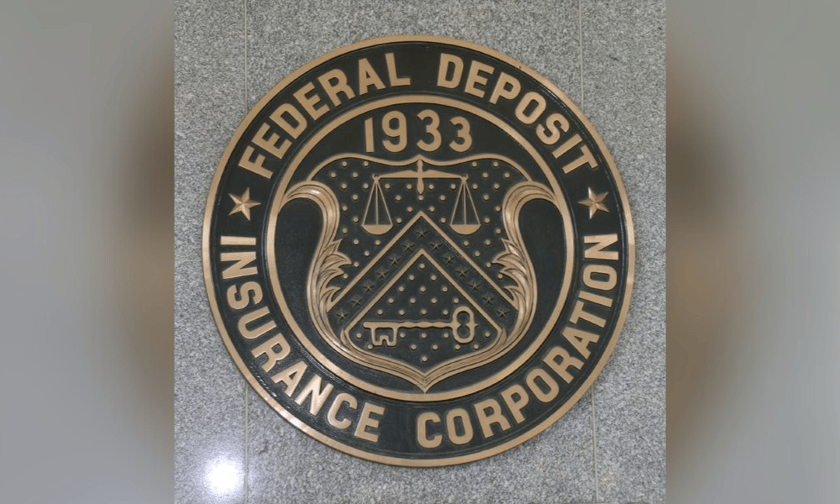Move could delay attempts to regulate exec pay, establish clawbacks

Late yesterday, the White House announced that the Federal Deposit Insurance Corporation (FDIC) chairman would be stepping down, following the release of a critical report about the agency’s harmful workplace environment earlier this month.
Martin Gruenberg will resign once a successor is named, with President Joe Biden expected to announce a replacement “soon”, according to the White House. The news followed a call for Gruenberg’s removal by the Senate Banking Committee’s top Democrat earlier that day.
Gruenberg’s departure could complicate at least one regulatory proposal that many regulators are eager to see implemented. Just a day before the report was released, the FDIC reintroduced a rule from the Dodd-Frank era aimed at what it considers is excessive compensation on Wall Street when executives’ risky decisions result in substantial investor losses. Previous versions of this rule faced significant opposition, with critics arguing that the government was trying to secure a seat on the boards of major financial firms.
Originally proposed in April 2011, the rule attracted over 10,000 comments. In June 2016, regulators introduced a revised version but did not take further action until now. The current proposal includes provisions for mandatory clawbacks and asset forfeiture in certain situations, shifting the authority from corporate boards to regulators. Additionally, it could impose specific performance criteria for executives and restrict the compensation committee’s discretion in adjusting payouts.
Deputy Press Secretary Sam Michel stated, “Biden expects the FDIC to reflect the values of decency and integrity and to protect the rights and dignity of all employees.”
The FDIC, a key regulator of the US banking system established during the Great Depression, is primarily known for managing the country’s deposit insurance program, which secures deposits up to $250,000 in the event of a bank failure.
Until Monday, no Democrats had explicitly demanded Gruenberg’s resignation, though some had hinted at it. Sen. Sherrod Brown, the leading Democrat on the Senate Banking Committee and currently facing a challenging re-election, released a statement calling for Gruenberg to step down, citing a lack of trust in his leadership at the FDIC.
Brown stated: “After chairing last week’s hearing, reviewing the independent report, and receiving further outreach from FDIC employees to the Banking and Housing Committee, I am left with one conclusion: there must be fundamental changes at the FDIC.”
Republicans have long been advocating for Gruenberg’s dismissal and have criticized the White House for not immediately demanding his resignation.
Gruenberg has served in various leadership roles at the FDIC for nearly two decades, with this being his second full term as chairman. The independent report attributes the agency’s toxic work culture significantly to his lengthy tenure.
The report, released Tuesday by Cleary Gottlieb Steen & Hamilton, highlighted numerous incidents of misconduct, including stalking, harassment, homophobia, and other employment regulation violations, based on over 500 employee complaints.
Specific complaints included a woman being stalked and harassed by a coworker despite reporting his behavior, a field office supervisor derogatorily referring to gay men, and a female field examiner receiving an inappropriate image from a senior FDIC examiner.
The FDIC reported it had 92 harassment complaints in the eight years between 2015 and 2023 – none of which ended in a firing, reduction in pay or rank, or sanctions more serious than a suspension, according to the law firm’s report.
Timeline of Gruenberg’s career
- April 1, 1953: Martin James Gruenberg is born.
- 1979: Gruenberg graduates with a J.D. from Case Western Reserve University School of Law.
- 1987 – 1992: Staff Director of the Senate Banking Committee’s Subcommittee on International Finance and Monetary Policy.
- 1993 – 2005: Senior counsel to Senator Paul S. Sarbanes on the Senate Committee on Banking, Housing, and Urban Affairs.
- November 16, 2005 – June 26, 2006: Acting Chairman of the FDIC under President George W. Bush.
- Preceded by: Donald E. Powell
- Succeeded by: Sheila Bair
- August 22, 2005: Confirmed by the Senate as a member of the FDIC Board of Directors.
- Vice Chairman: Senate-confirmed until his first term as Chairman in 2012.
- November 28, 2012 – June 5, 2018: Chairman of the FDIC.
- Acting Chairman: July 9, 2011 – November 28, 2012 under President Barack Obama.
- Preceded by: Sheila Bair
- Succeeded by: Jelena McWilliams
- November 2007 – November 2012: Chairman of the executive council and president of the International Association of Deposit Insurers.
- December 2019: Becomes the longest-serving director in FDIC history.
- February 5, 2022 – January 5, 2023: Acting Chairman of the FDIC under President Joe Biden.
- January 5, 2023: Sworn in for his second Senate-confirmed term as FDIC Chairman under President Joe Biden.
- Preceded by: Jelena McWilliams
- November 2023: The Wall Street Journal publishes an article detailing widespread misconduct at the FDIC, including issues of sexual harassment and racial discrimination.
- May 2024: Cleary Gottlieb releases a report detailing 485 allegations of misconduct at the FDIC and criticizing Gruenberg’s leadership style.
- May 15-16, 2024: Gruenberg appears in hearings before the House Committee on Financial Services and Senate Committee on Banking, Housing, and Urban Affairs.
- Criticized for personal conduct and failure to address workplace culture issues.
- Agrees to pursue anger management and counseling.
- May 20, 2024: Announces his resignation, effective once a successor is confirmed.
Photo credit: Ryan McFarland under creative commons licence 2.0
Related Stories
Keep up with the latest news and events
Join our mailing list, it’s free!




